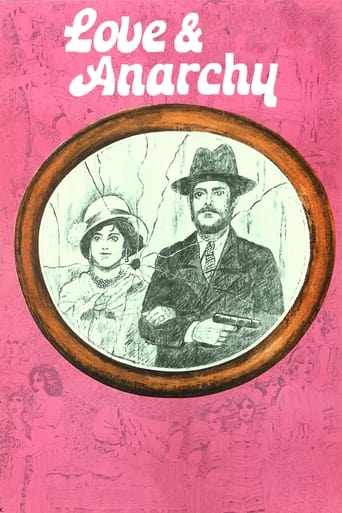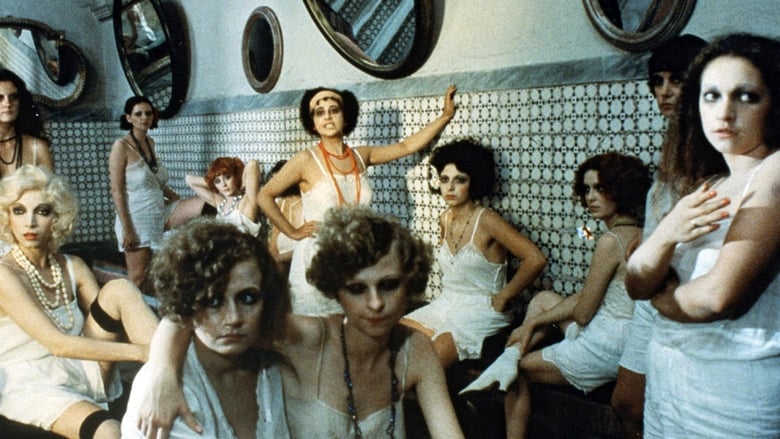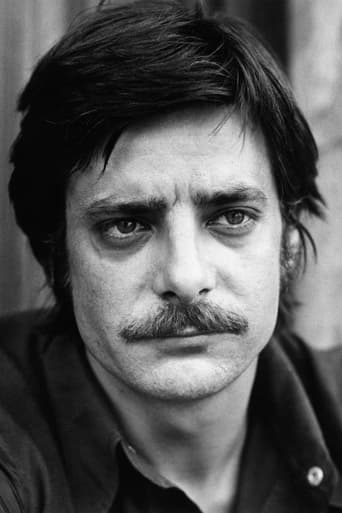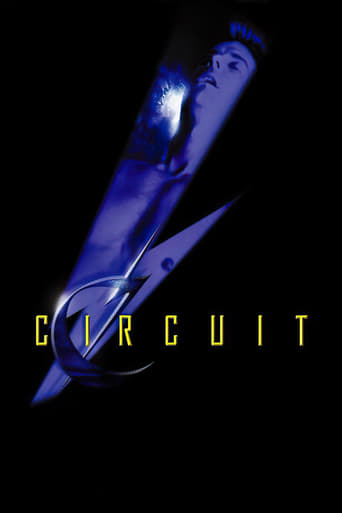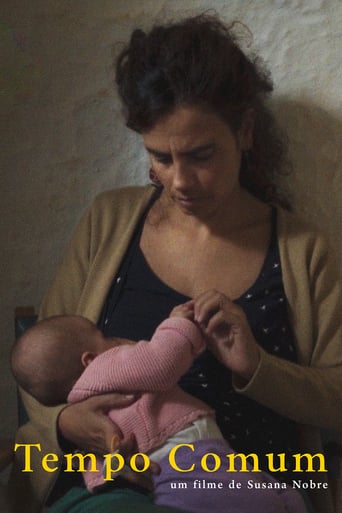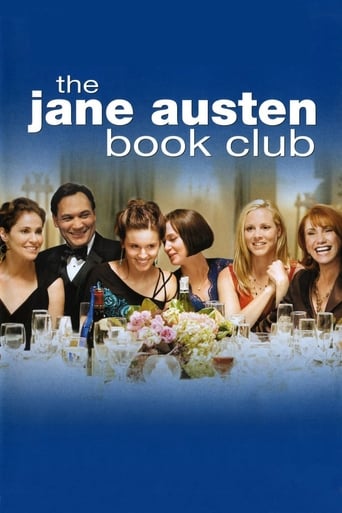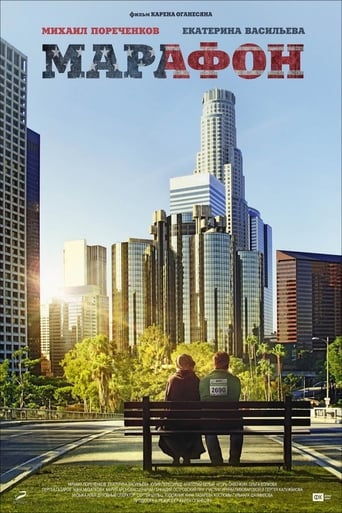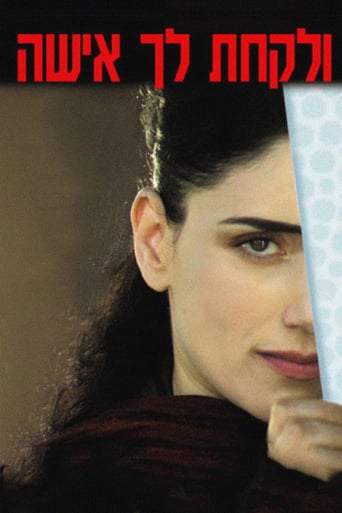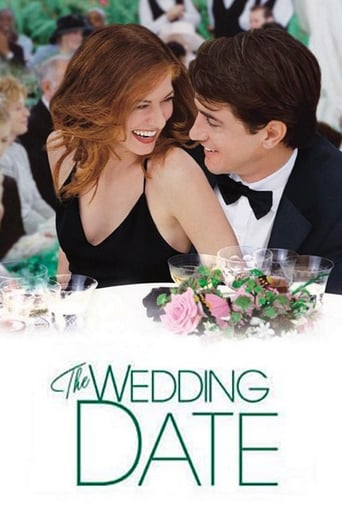Love and Anarchy (1973)
Set in Fascist Italy before the outbreak of World War II, the story centers on Tunin, a farmer turned anarchist who stays in a brothel while preparing to kill Benito Mussolini. There he falls in love with one of the whores.
Watch Trailer
Cast


Similar titles
Reviews
How sad is this?
In truth, any opportunity to see the film on the big screen is welcome.
It's a movie as timely as it is provocative and amazingly, for much of its running time, it is weirdly funny.
Worth seeing just to witness how winsome it is.
To live like a dog or to die like a dog? It is an elemental question hovering above the head of a disaffected but weak-minded farmer Tunin (Giannini), after his anarchist friend being murdered by fascist police, he decisively joins the anarchist camp, and takes up his dead friend's cause, to kill Benito Mussolini. He arrives in Rome, and contacts his comrade Salomè (Melato), a premier prostitute in a brothel, who will assist to carry out his assassin plan. During a location scout with the unsuspecting Spatoletti (Pagni), the head of Mussolini's police division, Tunin falls for a young working girl Tripolina (Polito), will the mutually spontaneous romance spoil Tunin's determination of his action? Or, does it matter?LOVE AND ANARCHY is Wertmüller's seventh feature, which debuted in Cannes in competition and won Giannini BEST ACTOR award. It is the second teamwork for Wertmüller, Giannini and Mariangela Melato, after THE SEDUCTION OF MIMI (1972), and they would try a third time in SWEPT AWAY (1974) one year later.Freckle-faced, disheveled, Tunin is an honest but slow-witted countryside man, hasn't been to seaside before, he is not even a radical anarchist, but avenging the death of his friend, is the only thing he knows that can prove his worth, whether or not it is a suicidal mission. Fear is something he has to battle everyday, Giannini registers a viscerally soul-pulverising performance as Tunin, downplays his masculine charm and portrays him as a sympathetic, the salt of the earth sort, a cog in the machine, but radiates with those attributes what make human human. Mariangela Melato's Salomé, a spitfire driven by her own scores against the repressing government, is also superbly thrilling to behold, her piercing look, gravelly voice, worldly-wise flamboyance, and her unabashed camaraderie and affection towards Tunin, leaves a searing impact afterwards. A then 19-year-old Polito, a debutante in her full-fledged flapper outfit, thrusts herself into a more rational attempt to save her lover, only to no avail.Wertmüller's resplendent depiction of the Italian brothel is certainly inspired by aesthetics of Fellini school, and her taste for music is admirably impeccable as well, whether it is classical pieces like Debussy's CLAIRE DE LUNE, or the catchy French ditty LA PETITE TONKINOISE by Vincent Scotto, together with Nino Rota's sentimentally melodious score, emotionality and vivacity are eternally among the national spirits running in the Mediterranean blood of Italian people, not even the ominous subject matter and demoralising situation can change its tonality.Less heralded than Wermüller and Giannini's most acclaimed collaboration SEVEN BEAUTIES (1975), which earned both Oscar nominations (yes, Wermüller is the first woman who has even been nominated for BEST DIRECTOR), LOVE AND ANARCHY is no less a fine-crafted equivalent which speaks loud about its filmmakers' political slant and an outstanding melodrama can transfix its audience without compromising its thematic tragic.
Lina Wertmüller, the brilliant director who had her masterpiece Swept Away famously ravaged by Madonna,seems to have an approach to her actors like a woman to a great couture dress: if it works great, wear it again. And this she did-just like in Swept Away, we have Giancarlo Giannini and Maria Mellato in the leading roles, playing a country boy coming to Rome to avenge his friend's assassination by the Fascists through murdering Mussolini. Though Fascicsm may be the motif driving the story, the center stage for this juicy treat of a film is a Roman brothel where Giannini's character finds refuge, and gets drawn into the miniature universe of prostitutes and Madames varying from obnoxiously ugly to attractive, but each one loud-mouthed and bursting with passion regarding everything they do or say. Giannini created a masterpiece with his leading role, a man tortured both spiritually and visually, but we still can see the beauty of his piercing blue eyes underneath all that dirt and scars. Melato turned the prostitute stereotype into a whole new direction with the twist in the end where we see that even though she'd never admit it, it's not always about the money, but about the heart. Lina Wermtüller's movies usually revolve around male-female stories put into some sort of an extreme environment(a deserted island, fascist Rome), which makes her stories essentially much smaller in scale, at least when it comes to the core, a cat-and-mouse play between two equally passionate people. Of course, you have all your Italian stereotypes neatly arranged here as if it were on a shelf: curvy,beautiful girls, lots of smoking, cursing and alcohol, a bit of politics and a love story. As they would say: bravissimo.
I saw this film two times in 1973 and a few years later again in art cinemas in the United States. I vividly remember the opening line, "I'm off to kill Mussolini. Screw the rest." While Fox Lorber put this film on DVD in 1997, it is now unavailable and sells for $37 used. I bought a made-in-China copy for $5 on Ebay. I was a bit upset when the first title read only "I'm off to kill Mussolini." I wondered why the change? Anyways the rest of the DVD seemed fine.This is an amazing film. The acting by everyone is superb, with Giancarlo Gianini giving a performance that won him a best acting award at the Cannes film festival and should have won him an Oscar. He is Chaplinesque, but not imitative of Chaplin or anybody else. It is one of the most sympathetic performances ever given. In many scenes, he doesn't talk, but you sense his feelings of anger or sadness. His mass of freckles on his face make him look more like a 14 year old than a man planning a major political assassination. Mariangela Melato is sexy, foul-mouthed and hilarious. She also manages to make you believe that she is both a cynical prostitute and a politically and culturally aware anarchist. Lina Polito is the young prostitute with hope. She gives a performance similar to and as wonderful as Liza Minnelli in "Cabaret." The musical score by Federico Fellini's main composer, Nino Rota, is energetic and terrific. It often counterpoints the action on the screen, bringing us away from it, and making some harsh scenes seem comical, but it also heightens the playfulness or menace in other crucial scenes. He won an Oscar for the Godfather Part II a few years later, but he deserved one here too. This is a tribute to the European nihilist and anarchist movements of the 1800 and 1900's. It is also powerfully anti-fascist.This is great and enthralling film-making. It is Lina Wertmuller's best film and still stands out today, nearly 40 years later, as a great historical and humanist work of art. It is sad that more people do not know about it and have not had the opportunity to experience it.Having seen about 6,000 films (150 films X 40 years), I would put this one in the top twenty.
The well-regarded director Wertmuller made this movie which is a slow study into how brutality and violence can be saved my love in my opinion. It is very operatic which is how she chose to attack it. The direction, I can say is flawless but the movie feels incomplete. First, I am more the director who uses visual images rather than hammy stagey dialogue to tell their stories. Carnini is the only actor who does not use a pantomime, overexagerrated style in the movie until the very end, while everybody else does. It softens the impact of the movie as it is the quieter moments that carry real weight. The style of direction is very narchiac with wonderful wide shots and good editing creating an effigy of exuberance over the picture. Most of the picture set in an italian bordello where the fascists of italy stay is a place for both love between carnini and pesilamo. Images are beautiful, and certain individual scenes work while others don't. We are left with a great understanding of what love must feel like but the brutality of man is never explained. It esssentially sets up the theory that all fascists are naturally evil. The ending tells us it is the stoty of one man while the movie sets it up as the story of every man. This the best explanation I can give without speaking too much about its plot. Wertmuller was much better in Swept away and seven beauties. But for an introduction to Wertmuller, and arty Italian cinema of the sixties and seventies which dealt very operaticly with evils of fascism.

